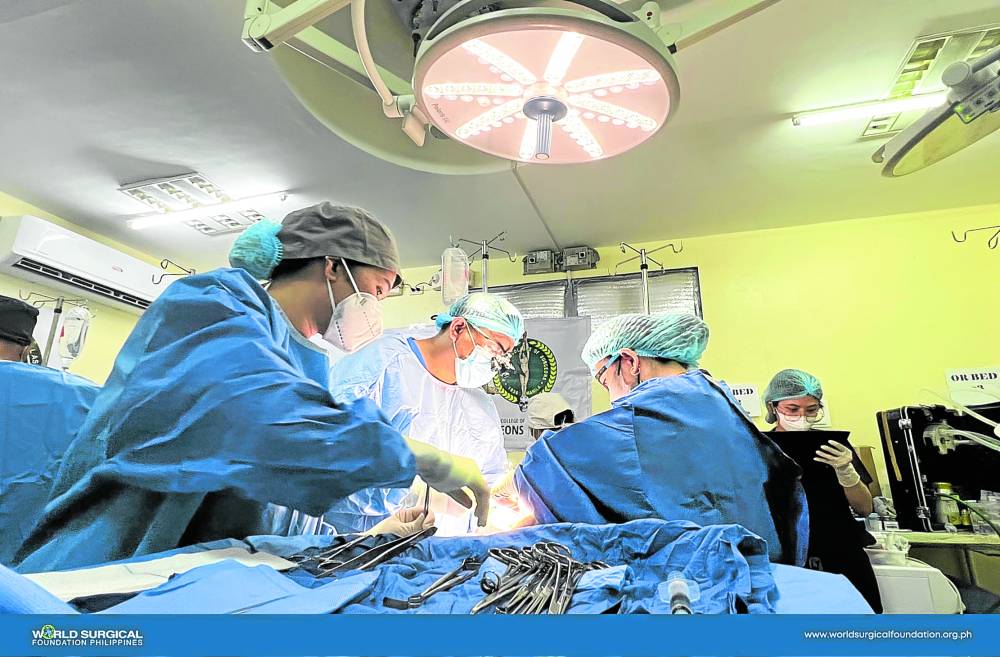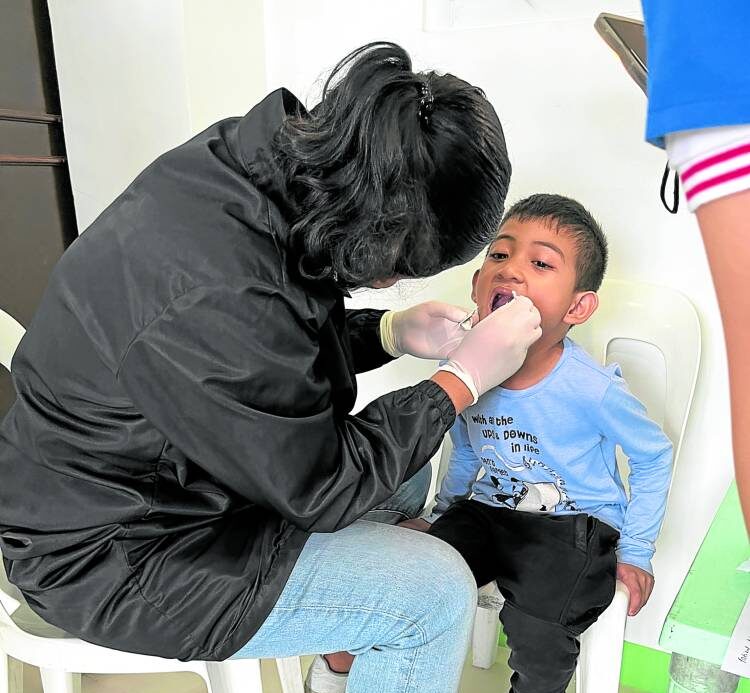Int’l meet lauds PH med groups, NGOs doing surgery for poor kids

RAISING QUALITY OF LIFE One of the initiatives recognized by the Global Initiative for Children’s Surgery is the Colostomy Freedom Project conducted in November 2023 by the World Surgical Foundation Philippines, in partnership with the Philippine College of Surgeons, Philippine Society of Anesthesiologists, Philippine Society of Pediatric Surgeons and Philippine Pediatric Society.—Contributed photo
They have a big gap to fill in poor, far-flung areas where medical services may be scarce or costly—and last week was an occasion to take stock of what they’ve done and chart their next steps.
Hundreds of health-care specialists from around the world gathered in Manila to review—and renew—a shared mission: How to reach the estimated 1.7 billion children worldwide whose quality of life could be vastly improved through relatively simple surgical procedures and other health interventions.
They refer mainly to children with cleft lips or cleft palates, suffering from malnutrition or whose otherwise treatable conditions due to trauma have long been neglected.
More than 250 members of the Global Initiative for Children’s Surgery (GICS)—pediatric surgeons, anesthesiologists, nurses and health-care professionals from more than 40 countries—held their fifth biennial conference (GICS V) on Feb. 25 to Feb. 26.
“With over 1,100 members representing 64 countries, our collective mission is clear: to make quality surgical care accessible to every child, regardless of their geographic location or socioeconomic status,” said Dr. Rodolfo Tuazon Jr., president of the Philippine Society of Pediatric Surgeons (PSDS) as he opened GICS V at Manila Hotel on Sunday.
Article continues after this advertisementFor GICS V, the focus was on narrowing “disparities” in terms of access to pediatric surgery and other services in low- and middle-income nations, including the Philippines, added GICS president Dr. Doruk Ozgediz.
Article continues after this advertisement“Some children, particularly in low-income countries, are assured to get care and live a normal, healthy and productive life, if only they were given access to surgery. Some of them do not survive at all,” Ozgediz told the Inquirer, a media partner of the event.
Achieving this requires “the confluence and cooperation” not just among medical societies but also support from government and nongovernmental organizations (NGOs), the American surgeon added.
In a speech delivered on the second day of the conference, Health Secretary Teodoro Herbosa acknowledged the “formidable challenges” faced by the country’s health system in extending timely surgical services to children who were among “the 28 million poorest Filipinos.”

Another is the Smile Train projectwhose partners include the Association of Philippine Orthodontists. —CONTRIBUTED PHOTO
PH a good example
Still, Ozgediz accentuated a positive trend: “The surgical leadership of the Philippines and the NGOs are already making tremendous strides to eliminate some of the disparities that children around the world are facing. They have done that by reaching out to rural communities, where children and their families have no access to even the most simple of surgeries to make their lives comfortable.”
There was no dearth of Philippine examples cited during the GICS meeting.
In September last year, more than 300 health workers led by doctors serving as members of the Philippine College of Surgeons (PCS) provided free surgery and medical care to indigent patients across the country. More than 100 private and public hospitals took part in the synchronized missions.
The nonprofit Rotary International has also been partnering with hospitals for similar initiatives.
Smile Train, considered the world’s largest organization created for children with cleft lips or palates, has operated on 1.5 million children since its inception in 1999. Its partners in the country also provide speech therapy, psychological support, nutritional interventions, orthodontics services and other related forms of assistance to minors.
Among Filipino children, cleft lip and cleft palate are conditions that occur in one per 500 births. If left uncorrected, the defects affect not only the child’s appearance but also his or her speech development, hearing and nutritional intake.
The World Surgical Foundation has conducted 17 surgical outreach missions in the country, including four focusing on colostomy. Its local partners include the PSDS, PCS, Philippine Society of Anesthesiologists and Philippine Pediatric Society, among others.
Public awareness
According Dr. Marilyn Butler, who currently serves as the GICS treasurer, one of the goals of the conference was to raise public awareness on the prevalence of “surgically treatable diseases” among children. These include trauma from road accidents and burns, as well as congenital anomalies.
“Notoriously in the past, surgery [for these conditions] was viewed as a very expensive service,” said Butler, who also hails from the United States.
Governments and charitable organizations should fund community infrastructure and personnel training so the ailing children and their families need not to go to cities. “We need to train more people in the city and disperse them to the lower-level hospitals in smaller towns,” she added.